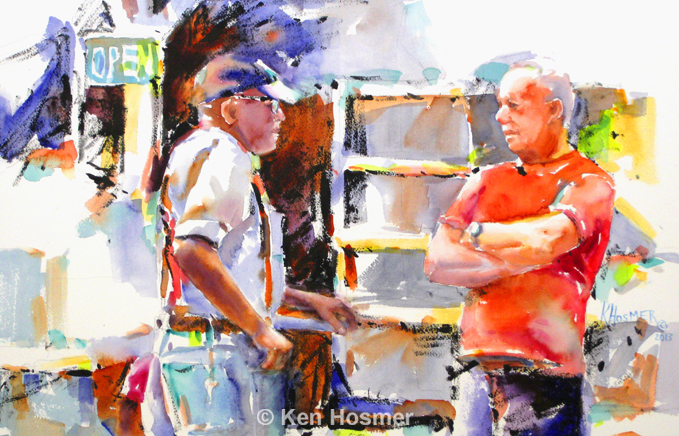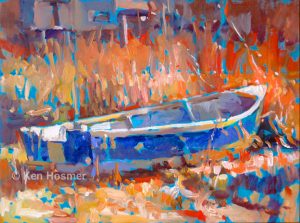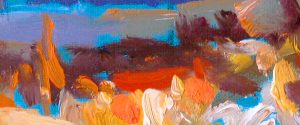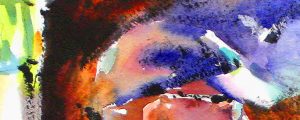
Is Style Important?
Some artists strive for perfection of detail as their main goal; others are infatuated by abstract composition. My personal passion is the manipulation of color. Each artist is intrigued by different parts of the painting process. These elements and others combine in a unique way to create style.
Featured Painting:
'Good Conversation'—watercolor by Ken Hosmer
So how do you find your personal painting style?
Evolution of Style
Artistic style should not be contrived. For example, you wouldn't emulate the look of Van Gogh paintings, because you love his painting style, or copy the current popular style of other artists.
Style comes from the repetition of doing many paintings over time. It is the honest evolution of your personal artistic interests, likes and dislikes, strengths and weaknesses. It reflects your chosen painting technique and your personality. In fact we might define style as the visual presentation of your artistic personality.
Clues to Finding Your Style
What parts of the artistic process do you enjoy the most? For example, if you continuously play with shapes to tweak your composition, that means you enjoy that part of painting process and this will influence your style. On the other hand, if you labor over color changes and don't find joy in color, then your style will reflect this struggle or perhaps show a lack of interest in color. Your personal style is a culmination of your strongest areas of interest and will also reflect your lesser qualities. The goal is to know yourself; find your artistic strengths and assemble them in a distinctive way. There is no right or wrong style. True style is totally personal and unique.

Reviewing Personal Style
It is good to periodically review your personal style to help clarify goals. Here is the review of my artwork.
My ideal painting gives objects solid form, yet presents dynamic paint energy where brushwork spontaneously flows in a dance of shape. I strive for a balance between control and random energy. I don't want my images to remain static, but rather to be alive with movement. I use compositional pathways to direct the viewer through the painting. Also, because I love to explore color, my paintings include both vibrant and subtle color variations. I can't resist adding another color passage. I exaggerate color. I convey emotion with color. I play with color!


Is Style Important?
If you are a beginning art student, then you should paint and enjoy, without concern for style. However, with time it is worth understanding your personal interests and strengths, as these can be further studied and this will add to a natural development of style.
To be honest, there are advantages to having an easily recognizable style. However, this has more to do with the promotion or marketing of art rather than its creation. Beware, galleries often try to lock an artist into a certain 'look.' This can be detrimental to creative experimentation and growth as an artist.
It is also worth noting that collectors often focus on uniqueness of style, and delight in 'discovering' an artist with a distinctive style. Some years ago, my wife and I were wandering the towns of Vermont, visiting old covered bridges. We stumbled upon the studio/museum of Grandma Moses. From the photographs and paintings on display, we learned that she lived not far from Norman Rockwell, and they were indeed good friends. So her self-taught, naive folk art style was a conscious choice, rather than the effect of isolation. In this case her unique style resulted in fame!
